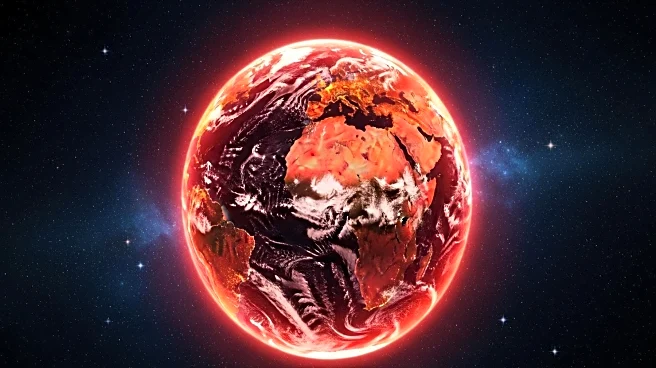What's Happening?
August 2025 was recorded as the fourth hottest August on record, according to Met Éireann. The average temperature reached 16.83 degrees Celsius, marking it as the warmest month of the year so far. This continues a trend of rising temperatures, with six consecutive months ranking among the top nine warmest in 126 years of records. Rainfall was below average in most locations, with the highest monthly rainfall recorded at Newport, Co Mayo. Sunshine levels varied, with Casement Aerodrome, Co Dublin experiencing 123% of average sunshine.
Why It's Important?
The record-breaking temperatures in August 2025 underscore ongoing climate change concerns. Rising temperatures can have significant impacts on agriculture, water resources, and energy consumption. The trend of warmer months may lead to increased demand for cooling systems and affect crop yields, posing challenges for food security. Additionally, the variability in rainfall and sunshine could influence local ecosystems and biodiversity. These climate patterns highlight the urgency for sustainable practices and policies to mitigate environmental impacts.
What's Next?
As climate trends continue, policymakers and environmental groups may push for stronger climate action and adaptation strategies. This could include investments in renewable energy, water conservation efforts, and infrastructure improvements to withstand extreme weather events. Public awareness campaigns may focus on reducing carbon footprints and promoting sustainable living. Scientific research will likely continue to monitor climate patterns, providing data to inform future policy decisions.
Beyond the Headlines
The record temperatures raise questions about long-term climate resilience and the capacity of communities to adapt. Ethical considerations around climate justice may emerge, as vulnerable populations disproportionately experience the effects of climate change. Cultural shifts towards environmental consciousness could influence consumer behavior and industry practices. The integration of climate education in schools may become more prevalent, preparing future generations to address environmental challenges.









